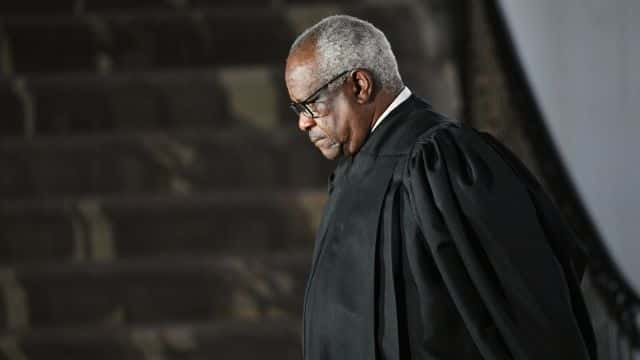In a speech he gave in Rome, Justice Samuel Alito mocked foreign criticism of the ruling, making his first public appearance since writing the opinion that overturned Roe v. Wade.
Alito, sporting a new beard, gave the talk last week, but Notre Dame Law School didn’t make it public until Thursday.
The talk was primarily about defending religious freedom.
Who is Samuel Alito, the justice? Alito said that religious freedom was being attacked in many places because it posed a threat to those who desired total control. He continued, “It probably also stems from something dark and deep in the human DNA — a tendency to distrust and despise people who are different from ourselves.
His remarks come a month after the end of a momentous term in which the court’s majority not only abolished the federal right to an abortion but also decided two cases in favour of religious conservatives.
Alito gave the opening remarks at the Religious Liberty Initiative at Notre Dame Law School. The majority of the speech was devoted to a general discussion of historical challenges to religious freedom.

Alito made only passing mention of the final draft of the abortion ruling he wrote in Dobbs v. Jackson, which he referred to as an opinion “whose name may not be spoken,” and avoided directly addressing the leak of the ruling that occurred in May.
He did this by denouncing the foreign leaders who had disagreed with the opinion.
Alito said, pointing out that numerous foreign leaders felt “perfectly fine” criticizing American law. “I had the honour this term of writing what I believe to be the only Supreme Court decision in that institution’s history,” he said.
He pointed out that UK Prime Minister Boris Johnson, who announced his resignation plan days after the opinion was released, was one of the critics.
Alito said, “He paid the price,” to laughter and cheers. He also blasted Canadian Prime Minister Justin Trudeau and French President Emmanuel Macron for their remarks decrying the viewpoint.
With a sly smile on his face, Alito informed the audience that what “wounded” him most was when Prince Harry, the Duke of Sussex, “addressed the United Nations and seemed to compare ‘the decision whose name may not be spoken with the Russian attack on Ukraine.”
Returning to the subject of religious liberty, Alito stated that a difficult task is “persuading people that religious liberty is worth defending if they don’t think that religion is a good thing that deserves protection.”
He suggested that such an effort might centre on the ways in which religion fosters “domestic tranquillity.”
He stated that it “provides a way for religiously diverse people to hold together and to flourish” and added that the “American experience illustrates that well.”
He also emphasized the significant charitable work carried out by faith-based organizations and individuals.
Read more:-
- Exclusive: The Prosecution is Preparing for a Court Battle to Compel Former White House Officials to Testify Regarding Trump’s Conversations on January 6
- Doesn’t Sound Like a Recession’: Even though the Economy is Contracting 2, Vice President Biden is Optimistic.
- Due to “Creative Adjustments,” the Seth Rollins-riddle Summerslam Match Has Been Cancelled
By freezing the contract of a Catholic foster agency that refused to work with same-sex couples as potential foster parents because the agency believes marriage should only be between a man and a woman, Philadelphia was found to have violated the First Amendment in 2021, the court ruled.
Alito expressed dissatisfaction in a separate letter, arguing that the court should have gone much further in its ruling and made it much harder for the government to enact laws that discriminate against people based on their religious beliefs.
“The Court has emitted a wisp of a decision that leaves religious liberty in a confused and vulnerable state,” Alito wrote at the time.
But in the recently concluded term, the court twice ruled in favour of religious conservatives. It supported a football coach from a public high school who wanted to pray at the 50-yard line after games in one instance.
In another, it was stated that Maine couldn’t deny religious institutions access to tuition assistance programs available to both public and private schools.
In Rome, Alito closed his speech by quoting from the Bible. He said that “the champions of religious liberty, who ‘go out as wise as serpents and as harmless of doves’ can expect to find hearts that are open to their message.”


